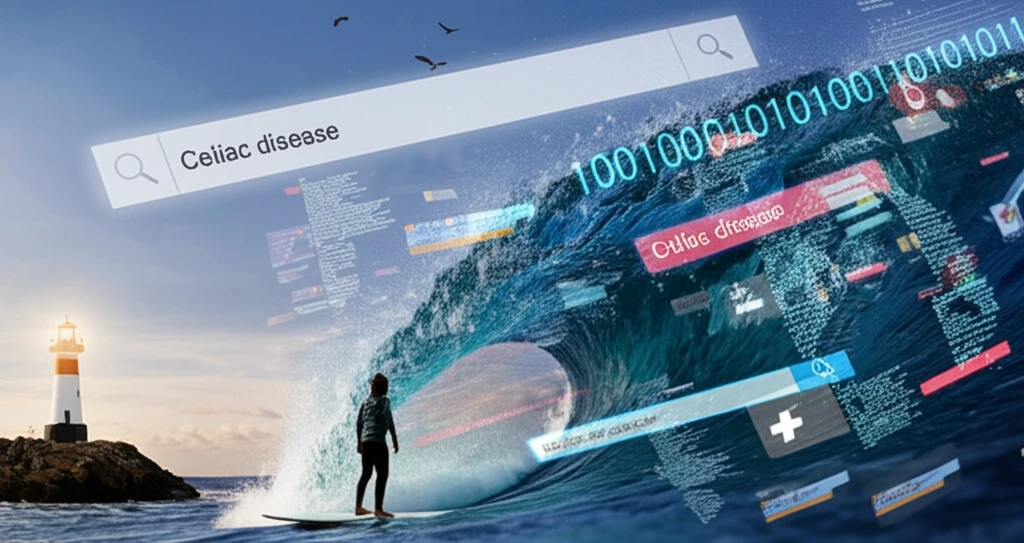
Celiac Disease in the Internet Age: Are You a Self-Diagnosing Surfer?
"Navigating the waters of online health info to understand Celiac Disease. How the internet is reshaping diagnosis and awareness."
Celiac disease (CD) is an autoimmune disorder triggered by gluten, a protein found in wheat, barley, and rye. The body's immune system reacts abnormally to gluten, leading to inflammation and damage to the small intestine. This can result in a variety of symptoms, which often vary widely from person to person, complicating and delaying accurate diagnosis. While some individuals experience classic gastrointestinal symptoms like diarrhea, bloating, and abdominal pain, others may have non-GI symptoms such as fatigue, anemia, skin rashes, or even neurological issues.
Adding to the challenge is the growing public awareness of CD. With more information available than ever before, individuals are increasingly turning to the Internet, social media, and personal networks to learn about their health concerns. This surge in health-related self-education has its pros and cons. While increased awareness can prompt people to seek medical attention, it can also lead to self-diagnosis, potentially delaying or misdirecting appropriate medical care.
The digital age has undoubtedly reshaped how we approach our health. This article explores the intersection of self-diagnosis, online resources, and professional medical advice when it comes to CD. We'll delve into a study on how patients use the Internet to understand their symptoms, the common pitfalls of online self-diagnosis, and when it's crucial to consult a healthcare provider.
Decoding Celiac: The Impact of the Internet on Diagnosis

A recent study investigated how individuals diagnosed with celiac disease utilized the Internet to understand their symptoms and potentially self-diagnose. The study, conducted between July 2014 and February 2017, involved adults with positive TTG and/or EMA antibodies and Marsh III histology, all indicative of CD. Participants were asked to complete an online survey detailing their symptoms, the health information sources they used, and any prior diagnoses they received before being diagnosed with CD.
- Alternate Diagnoses: Many participants had received alternate diagnoses, such as irritable bowel syndrome (IBS) or psychological disorders, before being correctly diagnosed with CD.
- Internet Reliance: A significant percentage of those surveyed turned to the Internet for information about their symptoms.
- Popular Websites: The Canadian Celiac Association, Mayo Clinic, and WebMD were among the most frequently accessed websites.
- Self-Diagnosis Attempts: A notable number of participants attempted to self-diagnose based on their online research.
- Doctor Discussions: Many individuals used information found online to initiate conversations with their doctors, request specific tests (like TTG), or seek referrals to gastroenterologists.
The Takeaway: Navigating the Digital Health Landscape
In conclusion, the Internet has undeniably transformed the landscape of health information, including how people understand and approach celiac disease. While online resources can be valuable tools for raising awareness and empowering individuals to take charge of their health, they should not replace the expertise and guidance of qualified healthcare professionals. If you suspect you may have celiac disease, it's essential to consult a doctor for proper testing and diagnosis. Use the Internet as a starting point, but always prioritize professional medical advice to ensure the best possible outcome.
